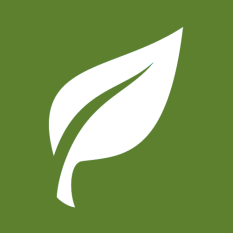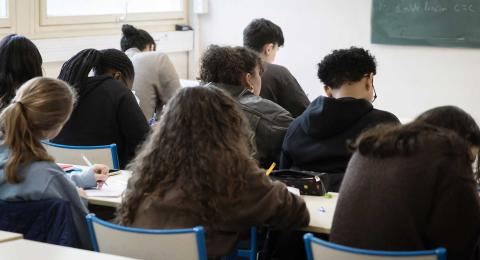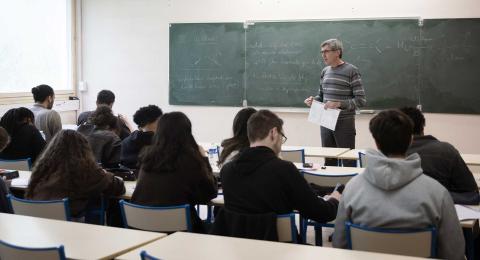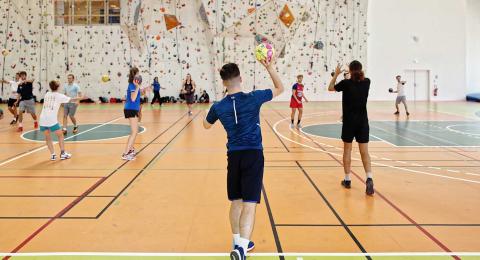Join the International Track in France (ITF) to build a strong foundation in biology while developing transferable skills in an international and multicultural environment.
Following the English-taught Master 1, continue your journey with an international Master 2 in Molecular and Cellular Biology, Neuroscience, or Microbiology.
Along the way, you'll have the opportunity to explore various fields, personalize your academic path, and engage in hands-on research in cutting-edge scientific fields.
Seize the unique opportunity to pursue a Master 1 program taught entirely in English, leading to a choice of Master 2 in Molecular and Cellular Biology, Neuroscience, or Microbiology. Our flexible program offers a tailored academic path and broad exposure to modern biology in an international setting through four complementary blocks:
Core Courses (17.5 ECTS)
A springboard to acquire essential foundations including language and intercultural competencies, cell and molecular biology, biochemistry, signaling, and genomics along with the key methodological tools needed to explore today’s leading fields in biology.
Electives (30 ECTS)
The heart of your M1, giving focus to your studies and allowing you to dive deeper into your chosen scientific area.
In parallel, expand your horizons! Explore other disciplines, broaden your scientific culture, and develop a cross-disciplinary perspective.
Research Training (12.5 ECTS)
Step into real research with a literature review and a hands-on internship.
Information
Skills
The Master’s program builds four essential competencies:
- Scientific Approach: design and conduct research projects, develop innovative ideas, and analyze data responsibly.
- Expertise
- - Acquire specialized knowledge in your field and at the interface of multiple disciplines.
- - Continuously update knowledge and stay informed about current research.
- - Synthesize scientific literature and master new technological tools independently.
- Scientific Communication: present and discuss results clearly in English or French, using the right tools for reports, presentations, and publications.
- Professional Skills: work independently and in teams, interact with diverse partners, plan effectively, and act ethically.
Outcomes: gain a research-driven mindset, transferable skills, and international experience to prepare for PhD programs, research careers, or roles in life sciences and health.
Objectives
We offer an innovative Master’s program designed to provide you with a solid and broad-based foundation in Life Sciences and Health, while preparing you for research careers and international opportunities. Entirely taught in English during the first year (Master 1), our program welcomes both international and national students who wish to experience a global academic environment on a world-class and highly competitive campus in Europe.
The primary aim of the ITF is to give you strong disciplinary knowledge across key areas of modern biology while fostering the ability to analyze scientific literature, design and carry out research projects, and tackle concrete biological questions. Through a carefully designed curriculum featuring a Major to deepen your expertise, elective courses to broaden your perspective, and a dedicated Research Training block, you will progressively develop the core competencies, preparing you to further strengthen them and move toward expert proficiency in Master 2.
The ITF program at the Orsay site is specifically tailored for students planning to pursue a Master 2 specialization in fields such as microbiology, neuroscience, and molecular and cellular biology. It offers a broad foundation that also encompasses areas like cancer biology, stem cell research, and cutting-edge biotechnologies.
Flexibility is a key feature of the program. A wide range of electives and the possibility to personalize your pathway allow you to adapt the curriculum to your interests and career goals. An intensive internship provides valuable hands-on experience and strengthens both theoretical understanding and practical abilities in your chosen field.
Beyond scientific training, the ITF offers you an immersive international experience that promotes personal growth and professional development. Working and studying in a multicultural environment helps students cultivate transferable skills such as adaptability, teamwork, resilience, and cross-cultural awareness—qualities increasingly sought after by employers worldwide. Graduates benefit from a unique profile that combines advanced scientific expertise with international exposure, making them highly competitive for PhD programs, research positions, and careers across the life sciences and health sectors.
Whether you are an international student seeking a high-level entry into French Master programs or a French student eager to broaden your horizons, the ITF provides a research-driven education, a stimulating environment, and the freedom to design a pathway that matches your ambitions.
Career Opportunities
Career prospects
Après Master + Doctorat : chercheur ou enseignant-chercheur
Après un Master ou Master + Doctorat : ingénieur (recherche et développement, contrôle, production…)
Ingénieur.e d’études
Chargé.e de recherche et innovation
Chargé·e de projet
Chargé·e de validation/qualification
Chargé·e de communication scientifique, veille technologique ou transfert de technologie
Enseignant.es dans le secondaire
Coordinateur.rices d’étude ou chargé.es de projets dans la recherche clinique
Further Study Opportunities
M2 Cognition, behavior and mental disorders
M2 Computational Neuroscience and Neuroengineering
M2 Fundamental Microbiology
M2 Genetics, Genomics, Epigenetics and Evolution
M2 Human Genomics In Biotherapy, Health and Disease
M2 Systems and Synthetic Biology
M2 Systems Neuroscience : from cells to brain functions
M2 Tissue, Cell and Gene Biotherapies
Other M2 Tracks (French C1 + Prerequisites)
M2 Stem cells, Development & Cancer
M2 Endocrinology and Metabolism
Fees and scholarships
The amounts may vary depending on the programme and your personal circumstances.
Admission Route
Capacity
Available Places
Target Audience and Entry Requirements
We welcome motivated students from around the world, including France, who hold a degree equivalent to a French National Bachelor’s (Licence) in Life Sciences. Candidates should have a solid background in key areas of biology relevant to the program—molecular biology, biochemistry and signaling, cell biology, and genetics—and an English proficiency at the C1 level.
Admission is a two-step process:
- Application review based on academic performance, motivation, and career goals.
- Online interview for shortlisted candidates.
Application Period(s)
From 15/01/2026 to 31/03/2026
Supporting documents
Compulsory supporting documents
Motivation letter.
Completed questionnaire (to download on the master's web page).
All transcripts of the years / semesters validated since the high school diploma at the date of application.
Certificate of English level.
Curriculum Vitae.
Additional supporting documents
VAP file (obligatory for all persons requesting a valuation of the assets to enter the diploma).
Supporting documents :
- Residence permit stating the country of residence of the first country
- Or receipt of request stating the country of first asylum
- Or document from the UNHCR granting refugee status
- Or receipt of refugee status request delivered in France
- Or residence permit stating the refugee status delivered in France
- Or document stating subsidiary protection in France or abroad
- Or document stating temporary protection in France or abroad.










